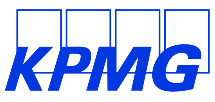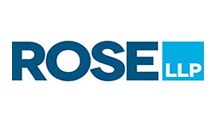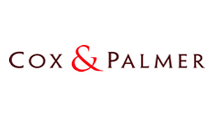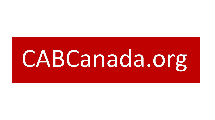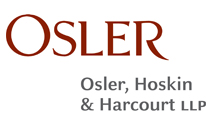Expedited Arbitrations: Comparison of the Various Institutions’ Rules

By Alexandra Mitretodis & Brock Euper
In the context of lower value claims or less complex disputes, expedited or fast track arbitrations provide a faster and more inexpensive way to resolve disputes. Expedited arbitrations can eliminate the need for an oral hearing, mandate shorter submissions, and implement more efficient procedures. They are also usually decided by a sole arbitrator, which can save costs and avoid delays. Further, expedited arbitrations can result in an award within 3 to 6 months from the start of the proceedings (as opposed to 12 to 18 months for many traditional arbitrations).
Expedited arbitrations may appear in an ad hoc setting, but they are also available in institutional proceedings. Under most institutional rules, the expedited procedures will apply under a specified monetary threshold, where the parties agree that they should apply, or where the institution determines that the procedures are appropriate.
Threshold
The primary difference in the expedited arbitration rules offered by the different institutions is when they apply; namely a monetary threshold. The International Chamber of Commerce (“ICC”) requires the dispute to be less than US$2 million to trigger the Expedited Procedure Provisions (unless the parties decide to opt-in or the ICC Court of Arbitration considers it appropriate in the circumstances).[1] The Singapore International Arbitration Center (“SIAC”), the Judicial Arbitration and Mediation Services Inc. (“JAMS”), and the Hong Kong International Arbitration Center (“HKIAC”) also have expedited procedures requiring the dispute be less than US$6 million,[2] US$5 million,[3] and US$3 million,[4] respectively. In contrast, the International Arbitration Rules offered by the International Center for Dispute Resolution (“ICDR”) apply to claims that do not exceed US$250,000.[5] In addition, for claims that do not exceed US$100,000, the dispute will be resolved by written submissions unless the arbitrators determine that an oral hearing is necessary.[6] The American Arbitration Association’s (“AAA”) Commercial Arbitration Rules and Mediation Procedures and the Domestic Commercial Arbitration Shorter Rules of Procedure of the British Columbia Arbitration Center (“BCICAC”) provide that expedited procedures apply to any dispute that does not exceed US$75,000[7] and CDN$50,000,[8] respectively. The Arbitration Rules published by the ADR Institute of Canada, Inc. (“ADRIC”) do not provide for a monetary threshold.
Procedures
Expedited arbitration provides for a faster and more cost-effective resolution of disputes by simplifying the procedure. Most expedited arbitration rules achieve this by eliminating the need for an oral hearing and by mandating stricter timelines. For instance, the ICC Arbitration Rules simplify the procedure in a number of ways by providing that there will be no terms of reference, mandating a case management conference within 15 days after the date on which the file was transmitted to the arbitral tribunal, allowing the arbitral tribunal to decide on documents only without an oral hearing, and allowing the arbitral tribunal to limit the number, length and scope of written submissions and written witness evidence.
The Simplified Arbitration Procedure provided by ADRIC reduces the timeline for parties to exchange statements to 10 days.[9] Additionally, all preliminary matters must be complete within 90 days of appointment[10] and there are no oral discoveries unless otherwise agreed by the parties or ordered by the Tribunal.[11] Furthermore, sworn statements of evidence must be filed at the hearing in lieu of examination in chief, and are subject to cross-examination and re-examination only.[12]
Sole Arbitrator
Expedited arbitration cases are often decided by a sole arbitrator. This can save costs and avoid the delays that are often associated with decisions by a panel. For instance, the ICDR requires a sole arbitrator to be appointed where the expedited procedure applies.[13] The rules of several other institutions mandate a sole arbitrator be appointed where expedited procedures apply, including the ICC,[14] AAA,[15] ADRIC,[16] and the BCICAC.[17] Article 42 of the HKIAC Arbitration Rules on expedited procedure further provides that the HKIAC will invite the parties to agree to send cases to a sole arbitrator where the arbitration agreement provides for three arbitrators.[18]
Issuance of Final Award
Expedited arbitration is also more efficient because the rules often require that the final award be rendered within a short time frame. For example, the ICC requires the that the final award be made within six months from the date of the case management conference.[19] The tribunal may decide the dispute solely on the basis of the documents submitted by the parties, with no hearing or examinations of witnesses or experts.[20] Similarly, the ICDR requires that awards be made not later than 30 days from the closing of the hearing or from the time established for final written submissions.[21] Other institutions that shorten the timeframe for an award to be made include ADRIC,[22] BCICA,[23] JAMS,[24] HKIAC[25] and SIAC.[26]
Conclusion
While arbitration is often less expensive than litigation, it can still be costly. Expedited arbitrations provide a unique opportunity for counsel to provide more value to their clients.
[1] Article 1(2) of the ICC Expedited Procedure Rules.
[2] Rule 5.1.a of the SIAC Rules 2016.
[3] Article 22.1(a) of the JAMS International Arbitration Rules.
[4] Article 42.1(a) of the HKIAC Administered Arbitration Rules.
[5] Article 1(4) of the ICDR Rules.
[6] Ibid.
[7] Section E-2 of the AAA Commercial Arbitration Rules and Mediation Procedures.
[8] Preamble of the Domestic Commercial Arbitration Shorter Rules of Procedure of the BCICAC.
[9] Rule 6.2.2(b) of the ADRIC Arbitration Rules.
[10] Rule 6.2.2(c) of the ADRIC Arbitration Rules.
[11] Rule 6.2.2(d) of the ADRIC Arbitration Rules.
[12] Rule 6.2.2(f) of the ADRIC Arbitration Rules.
[13] Article E-6 of the ICDR Rules, International Expedited Procedures.
[14] Article 2 of the ICC Expedited Procedure Rules.
[15] Section E-4, AAA Commercial Arbitration Rules and Mediation Procedures.
[16] Rule 6.2.2(a) of the ADRIC Arbitration Rules.
[17] Article 2 of the Domestic Commercial Arbitration Shorter Rules of Procedure of the BCICAC.
[18] Article 42.2(b) of the HKIAC Rules.
[19] Article 4 of the ICC Expedited Procedure Rules.
[20] Article 3(5) of the ICC Expedited Procedure Rules.
[21] Article E-10 of the ICDR Rules, International Expedited Procedures.
[22] Rule 6.2.2(h) of the ADRIC Arbitration Rules.
[23] Article 10 of the Domestic Commercial Arbitration Shorter Rules of Procedure of the BCICAC.
[24] Article 22.3(d of the JAMS International Arbitration Rules.
[25] Article 42.2(f) of the HKIAC Administered Arbitration Rules.
[26] Rule 5.2.d.
Alexandra Mitretodis is a lawyer in Vancouver at Fasken Martineau DuMoulin LLP with a practice in commercial litigation and arbitration. Alexandra is also an Adjunct Professor at the Peter A. Allard School of Law at The University of British Columbia.
Brock Euper is a summer student in Vancouver at Fasken Martineau DuMoulin LLP who is completing his final year of law school at the University of Victoria.





